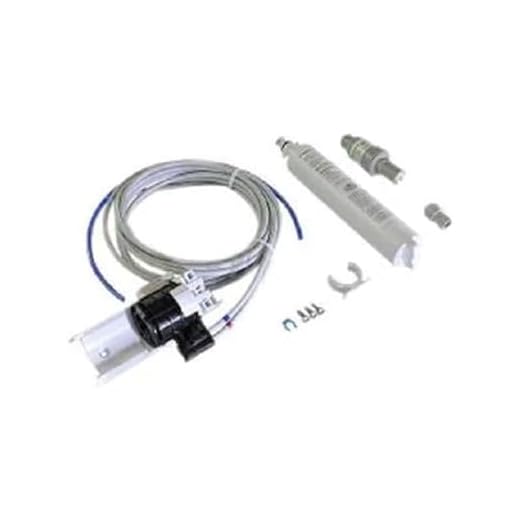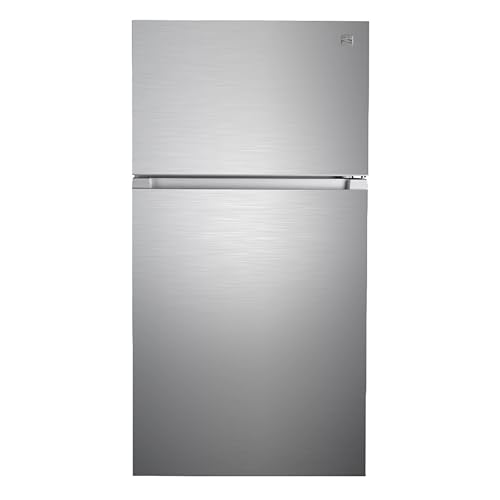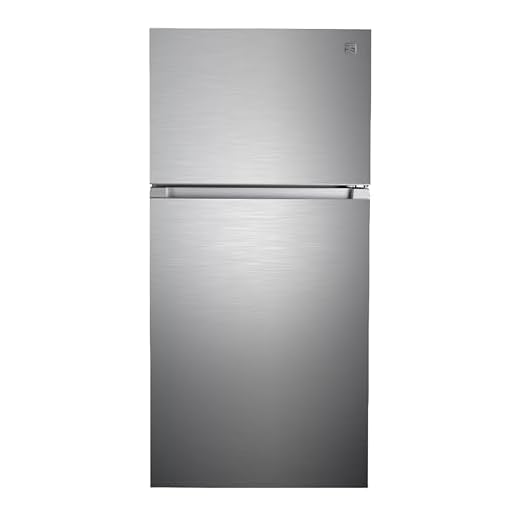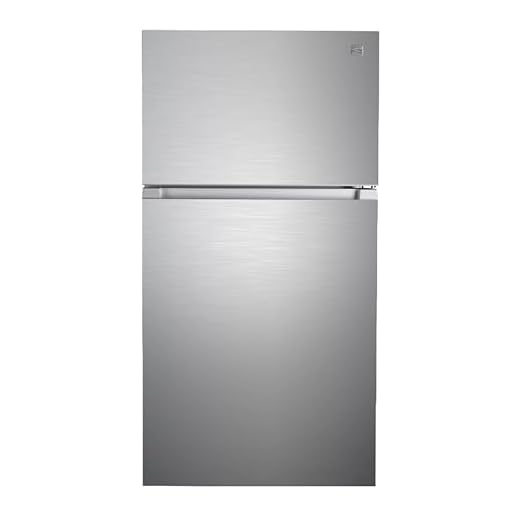



Refrigerators have become an essential part of our everyday lives. We rely on them to keep our food fresh and our drinks cold. But have you ever wondered if refrigerators run 24 hours a day? It’s a question that many people have asked, and the answer is not as straightforward as you might think.
Refrigerators are designed to maintain a constant temperature to keep food from spoiling. This means that they do run constantly, but their operation is not as simple as turning on and off. Refrigerators have a built-in mechanism called a thermostat that controls the temperature inside the appliance. When the temperature rises above a certain point, the thermostat signals the refrigerator to start cooling. Conversely, when the temperature drops below a certain point, the thermostat tells the refrigerator to stop cooling.
So, while refrigerators do run 24 hours a day, they do not run constantly at the same intensity. Instead, they cycle on and off to maintain the desired temperature. This cycling process helps save energy and prolongs the life of the refrigerator. It also ensures that your food stays fresh for longer periods.
In conclusion, refrigerators do run 24 hours a day, but they do not run continuously. They cycle on and off to maintain the desired temperature and save energy. So next time you hear your refrigerator humming away, remember that it is working hard to keep your food fresh and your drinks cold.
Exploring Refrigerator Running Time
Refrigerators are essential appliances that help keep our food fresh and prevent spoilage. But have you ever wondered how often a refrigerator runs? In this article, we will explore the running time of refrigerators and why they need to run continuously for extended periods.
How often does a refrigerator run?
A typical refrigerator runs for about 8-12 hours a day. However, this can vary depending on various factors such as the size of the refrigerator, the ambient temperature, and the usage patterns. During warmer months or if the refrigerator is frequently opened and closed, it may run for longer periods to maintain the desired temperature.
Why do refrigerators run continuously?
Refrigerators are designed to maintain a constant temperature to keep your food fresh and safe to consume. The continuous operation is necessary to achieve this goal. When you open the refrigerator door or put warm food inside, the temperature inside rises. The refrigerator then runs to cool down the interior and bring it back to the set temperature.
The continuous running of a refrigerator is also influenced by the insulation and efficiency of the appliance. A well-insulated refrigerator will require less running time compared to one with poor insulation. Newer models are designed to be more energy-efficient, which helps reduce the running time and overall energy consumption.
Some refrigerators also have features like adaptive defrost controls, which can optimize the defrosting cycle based on usage patterns and temperature fluctuations. These features help minimize the running time and improve energy efficiency.
In conclusion, refrigerators run for extended periods to maintain a constant temperature and preserve the freshness of your food. The running time can vary depending on factors like size, ambient temperature, and usage patterns. Remember to keep your refrigerator well-maintained and clean to ensure optimal performance and energy efficiency.
Understanding Refrigerator Energy Consumption
Refrigerators are an essential appliance in any household, keeping our food fresh and preserving its quality. However, it is important to understand the energy consumption of refrigerators to ensure energy efficiency and minimize electricity costs.
Refrigerators do not run 24 hours a day, but they do cycle on and off to maintain a constant temperature. The duration of each cycle depends on factors such as the ambient temperature, the amount of food stored, and the refrigerator’s insulation. On average, a refrigerator may run for about 8 to 12 hours a day.
Energy consumption is measured in kilowatt-hours (kWh). The exact energy consumption of a refrigerator can vary depending on its size, age, and efficiency rating. Newer models typically have better energy efficiency due to advancements in technology.
To determine the energy consumption of your refrigerator, you can refer to its energy label or consult the manufacturer’s specifications. The energy label provides information on the refrigerator’s annual energy consumption and efficiency rating.
| Energy Efficiency Rating | Annual Energy Consumption (kWh) |
|---|---|
| A++ | less than 100 |
| A+ | 100-150 |
| A | 150-200 |
| B | 200-250 |
By choosing a refrigerator with a higher energy efficiency rating, you can save on electricity costs in the long run. Additionally, proper maintenance and regular cleaning of the refrigerator’s coils can improve its energy efficiency.
It is also important to consider the placement of the refrigerator. Placing it away from heat sources such as direct sunlight, ovens, or dishwashers can reduce its energy consumption. Adequate ventilation around the refrigerator is also necessary for efficient operation.
In conclusion, understanding the energy consumption of refrigerators is crucial for optimizing their efficiency and minimizing electricity costs. By choosing an energy-efficient model, maintaining the refrigerator properly, and placing it in an ideal location, you can ensure optimal performance and energy savings.
The Impact of Continuous Refrigerator Operation
Refrigerators are essential appliances in our daily lives, playing a crucial role in keeping our food fresh and safe to consume. However, have you ever wondered about the impact of running these appliances 24 hours a day?
Energy Consumption:
Continuous refrigerator operation can lead to significant energy consumption. According to studies, refrigerators account for a considerable portion of a household’s total energy usage. In fact, refrigeration can consume up to 15% of a household’s electricity.
While modern refrigerators are designed to be energy-efficient, running them continuously can still contribute to a higher electricity bill. The constant cycling of the compressor and other components requires a continuous supply of electricity.
Environmental Considerations:
In addition to higher energy consumption, continuous refrigerator operation also has environmental implications. The increased demand for electricity to power refrigerators results in higher carbon dioxide emissions from power plants. These emissions contribute to climate change and air pollution.
Reducing refrigerator usage, such as by unplugging it during extended periods of absence, can have a positive impact on the environment by reducing energy consumption and carbon emissions.
The Importance of Maintenance
To minimize the negative impact of continuous refrigerator operation, regular maintenance is crucial. Keeping the condenser coils clean and free of dust and debris helps the refrigerator operate more efficiently, reducing energy consumption.
Additionally, checking the door seal for any gaps or leaks and replacing it if necessary ensures that the refrigerator maintains its optimal temperature and reduces energy waste.
The Role of Temperature Settings
Proper temperature settings are essential to ensure food safety and reduce energy consumption. The refrigerator should be set between 35°F (1.6°C) and 38°F (3.3°C), while the freezer should be set at 0°F (-17.8°C).
Setting the refrigerator too low or the freezer too high not only affects food quality but can also lead to excessive energy consumption. Regularly monitoring and adjusting the temperature settings can help optimize energy usage while keeping the food fresh.
In conclusion, while refrigerators do run 24 hours a day, understanding the impact of continuous operation is important. Being mindful of energy consumption, performing regular maintenance, and setting appropriate temperature levels can help mitigate the environmental effects and ensure optimal efficiency of the refrigerator.
Factors Affecting Refrigerator Running Time
There are several factors that can affect how long a refrigerator runs throughout the day. Understanding these factors can help you optimize the energy efficiency of your appliance and reduce your energy consumption.
1. Temperature Setting
The temperature at which you set your refrigerator can significantly impact its running time. The lower the temperature, the longer the compressor will need to run to maintain the desired cooling level. Consider adjusting the temperature to a slightly higher setting to reduce running time without compromising food safety.
2. Door Usage
The frequency and duration of door openings also affect how long a refrigerator runs. Each time you open the door, warm air enters the fridge, leading to an increase in temperature. The compressor then has to work harder and longer to cool the interior. Minimizing door openings by planning ahead and retrieving multiple items at once can help reduce running time.
3. Refrigerator Location
The location of your refrigerator within your home can impact its running time. Placing the refrigerator near heat sources such as ovens or direct sunlight can cause it to work harder to maintain the set temperature. Ideally, position your refrigerator away from any heat sources and in a well-ventilated area to improve energy efficiency.
4. Refrigerator Maintenance
Regular maintenance of your refrigerator is essential in ensuring optimal performance. A dirty condenser coil can reduce the efficiency of the cooling system and lead to longer running times. Clean the condenser coil at least twice a year to remove any dust or dirt that may have accumulated. Additionally, make sure the door seals are intact and free from any gaps that could allow warm air to enter.
5. Refrigerator Age and Efficiency
The age and efficiency of your refrigerator can also affect its running time. Older models may be less efficient and require more energy to cool the same volume of space. Consider upgrading to a more energy-efficient model if your refrigerator is more than 10 years old to reduce running time and lower your energy consumption.
By considering and addressing these factors, you can optimize your refrigerator’s running time and reduce the energy consumed by this essential household appliance.
Efficient Use of Refrigerators
Refrigerators are essential appliances in our daily lives, helping us keep our food fresh and safe for consumption. However, they can consume a significant amount of energy if not used efficiently. By following these tips, you can optimize the use of your refrigerator and minimize its impact on your energy consumption:
1. Proper Temperature Settings
Setting the temperature of your refrigerator and freezer at the optimal levels can help reduce energy usage. The refrigerator should be set between 35°F and 38°F (1.7°C and 3.3°C), and the freezer at 0°F (-17.8°C) for safe food storage. Avoid setting the temperatures lower than necessary, as it can lead to unnecessary energy consumption.
2. Organize and Keep the Door Closed
Organizing the contents of your refrigerator can help improve its energy efficiency. Arrange items in a way that allows for proper air circulation and avoids overcrowding. Additionally, make sure to keep the refrigerator door closed as much as possible to prevent the escape of cold air. Each time the door is opened, the refrigerator has to work harder to restore its temperature.
By adopting these practices, you can ensure that your refrigerator operates efficiently, reducing energy consumption and saving you money in the long run.
Tips for Reducing Refrigerator Running Hours
While refrigerators do run for a significant portion of the day, there are a few tips you can follow to help reduce their running hours and save energy:
| 1. Clean the condenser coils regularly | When the condenser coils are covered in dust and debris, it becomes harder for the refrigerator to cool down effectively. By cleaning the coils at least twice a year, you can help the refrigerator operate more efficiently and run for shorter periods. |
| 2. Set the temperature correctly | Make sure your refrigerator is set to the recommended temperature between 35°F and 38°F (1.7°C and 3.3°C). Keeping the temperature within this range ensures that the refrigerator doesn’t have to work harder than necessary to maintain a cool interior. |
| 3. Avoid overfilling the refrigerator | Try not to overload your refrigerator with too many items. When the refrigerator is overcrowded, air circulation becomes restricted, causing the appliance to work harder to cool everything down. Be mindful of the recommended capacity and organize your groceries accordingly. |
| 4. Keep the refrigerator away from heat sources | Placing the refrigerator near heat sources like a stove, oven, or direct sunlight can make it work harder to maintain its cool temperature. Position the refrigerator away from these heat sources to reduce its running hours. |
| 5. Check the door seals | Inspect the door seals regularly to ensure they are tight and in good condition. Loose or damaged seals can allow cold air to escape and warm air to enter the refrigerator, causing it to work harder and run for longer periods. |
| 6. Don’t leave the refrigerator door open | Make a habit of closing the refrigerator door quickly after use. Leaving the door open for extended periods allows cold air to escape, increasing the running hours of the refrigerator as it works to restore the lost temperature. |
The Role of Energy Star in Refrigerator Efficiency
The Energy Star program plays a vital role in ensuring that refrigerators operate efficiently, helping to reduce energy consumption and environmental impact. Energy Star is a voluntary labeling program introduced by the United States Environmental Protection Agency (EPA) and the Department of Energy (DOE) to promote energy-efficient products.
Refrigerators that meet Energy Star requirements have been independently tested and certified to use less energy compared to standard models. These certified models often include advanced features and technologies that optimize energy usage and reduce greenhouse gas emissions.
Benefits of Energy Star Certified Refrigerators:
1. Energy Savings: Energy Star certified refrigerators are approximately 9-10% more energy efficient than non-certified models. Over the lifetime of the appliance, this can lead to significant savings on electricity bills.
2. Environmental Impact: By using less energy, Energy Star certified refrigerators help to reduce greenhouse gas emissions and decrease the strain on natural resources. This contributes to a greener and more sustainable environment.
3. Performance and Features: Energy Star certification ensures that the refrigerator meets strict performance standards. These refrigerators are designed to provide high-quality cooling and storage capabilities while using less energy.
How Energy Star Certification Works:
Manufacturers submit their refrigerators for testing and certification by an accredited laboratory. The testing process evaluates energy efficiency, performance, and other factors according to specific Energy Star criteria. Only appliances that meet the requirements earn the Energy Star label.
The Energy Star label can be found on the appliance itself, as well as in promotional materials and product listings. Consumers can easily identify Energy Star certified refrigerators and make informed purchasing decisions to support energy efficiency and reduce their environmental footprint.
Conclusion: Energy Star plays a vital role in promoting energy-efficient refrigerators. By choosing an Energy Star certified model, consumers can save energy, reduce their carbon footprint, and enjoy high-quality performance. It’s a win-win for both the individual and the environment.
FAQ
Do refrigerators run constantly?
No, refrigerators do not run constantly. They have a built-in thermostat that controls the temperature inside the refrigerator. When the temperature rises above the set temperature, the compressor turns on and cools down the refrigerator. Once the desired temperature is reached, the compressor shuts off until the temperature rises again.
How long does a refrigerator run in a day?
The running time of a refrigerator depends on various factors such as size, age, and insulation. On average, a refrigerator runs for about 8-10 hours a day. The running time can also be affected by the frequency of door openings and the amount of food stored inside.
Is it normal for a refrigerator to run all the time?
No, it is not normal for a refrigerator to run continuously. If your refrigerator is running all the time, it could indicate a problem such as a faulty thermostat, dirty coils, or a refrigerant leak. It is recommended to have a professional technician check and repair the refrigerator if it is running continuously.
Can a refrigerator run 24 hours straight?
No, a refrigerator should not run 24 hours straight. Refrigerators are designed to cycle on and off to maintain the desired temperature inside. If a refrigerator runs continuously without turning off, it may indicate a malfunction or an issue with the temperature control system. It is advisable to have it checked by a professional to ensure proper functioning.











